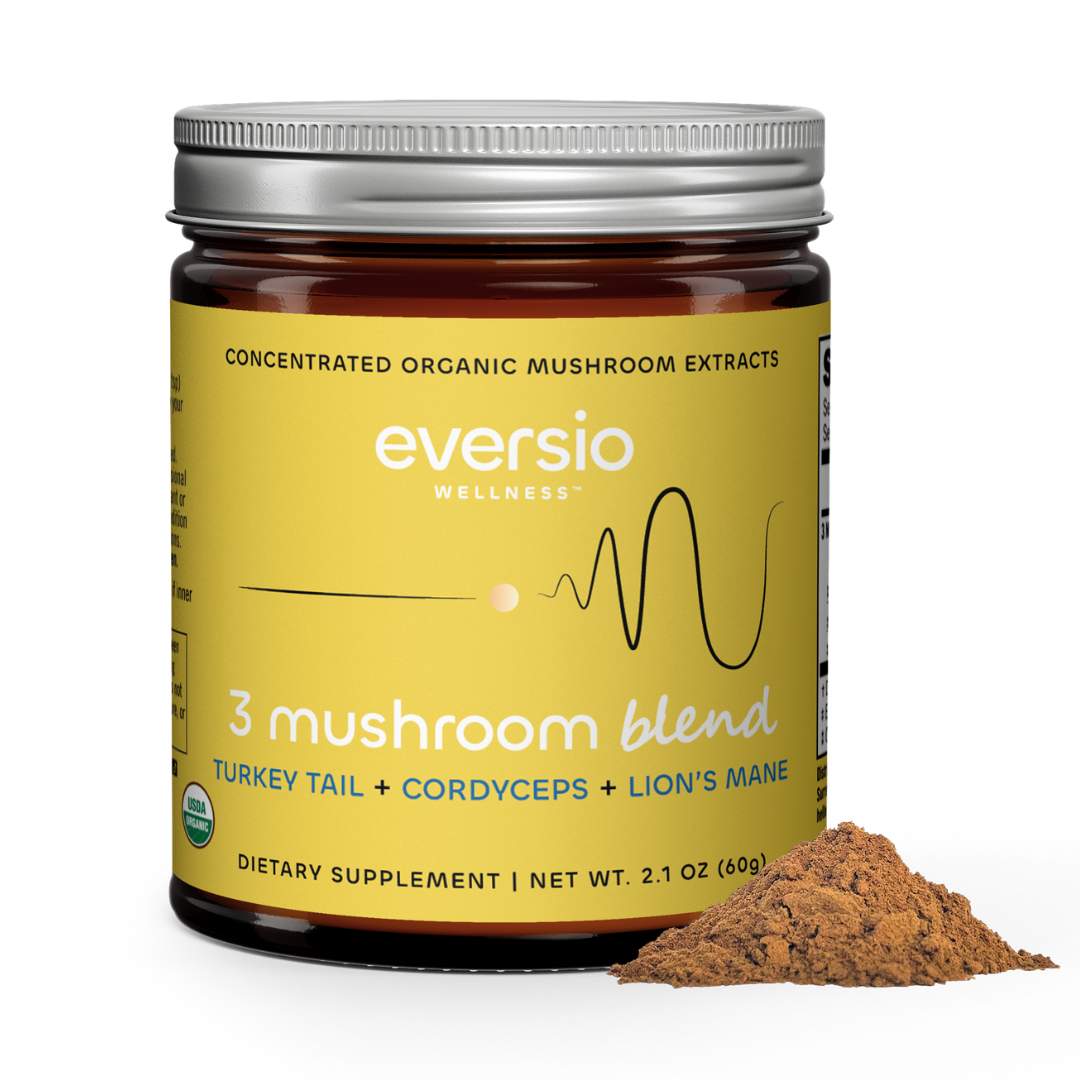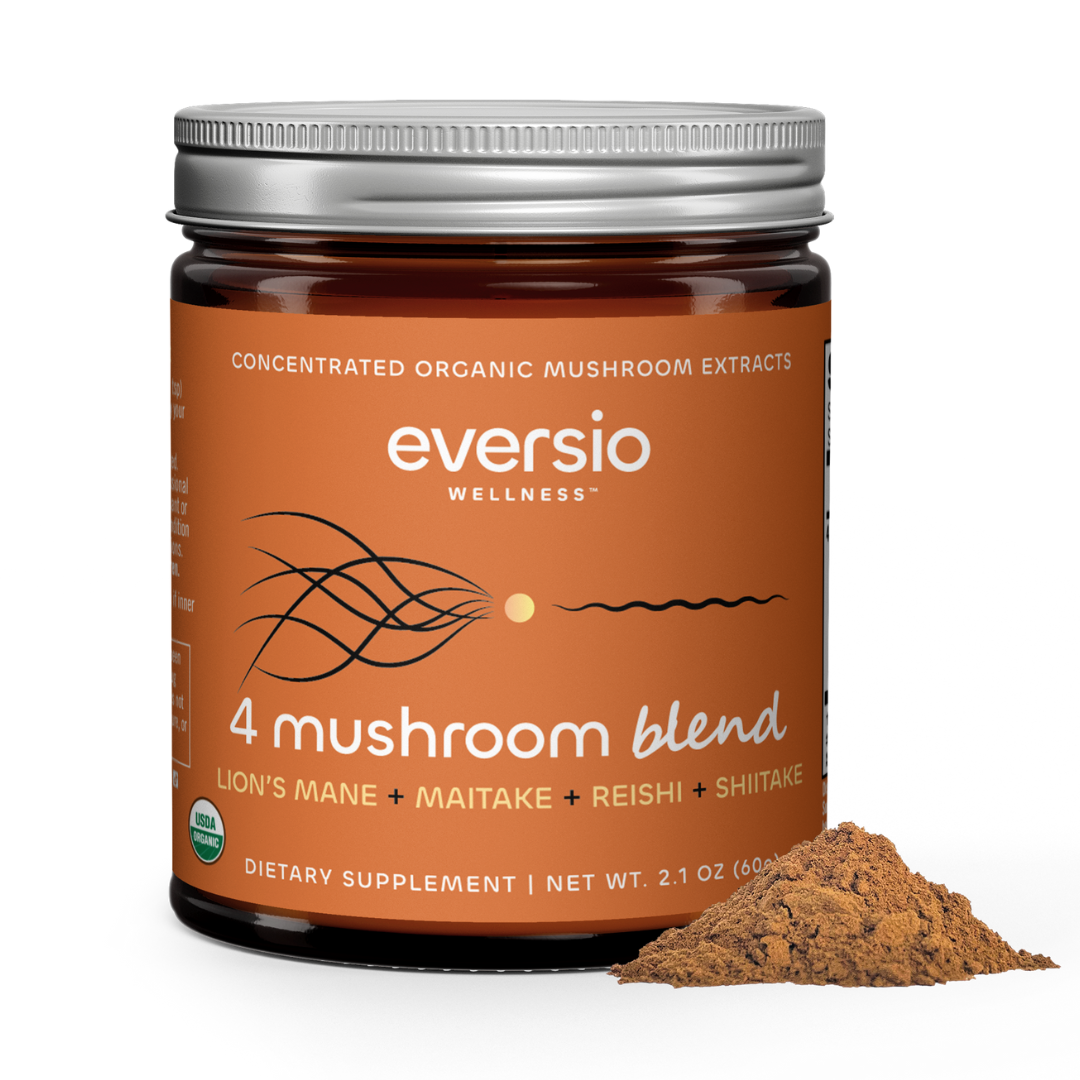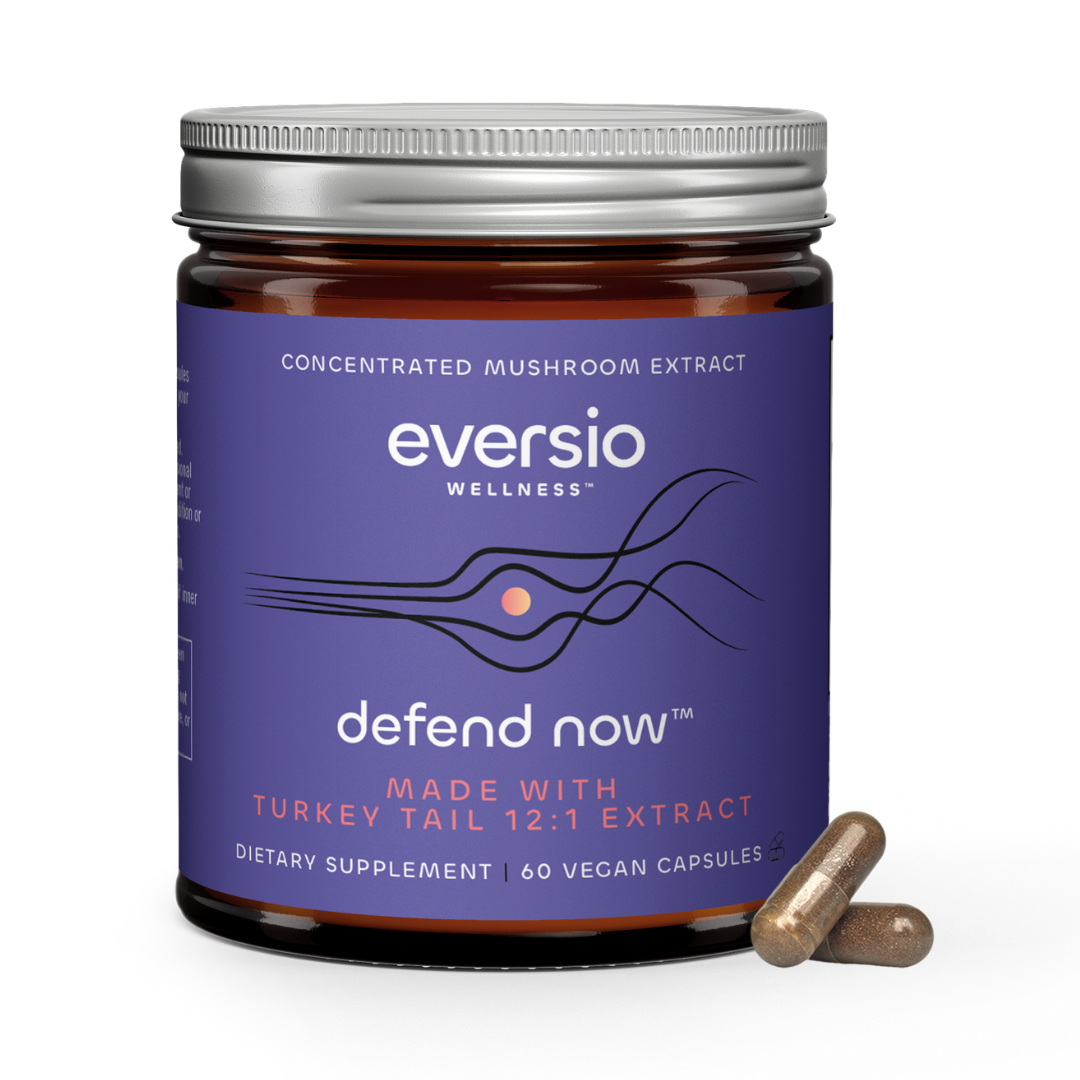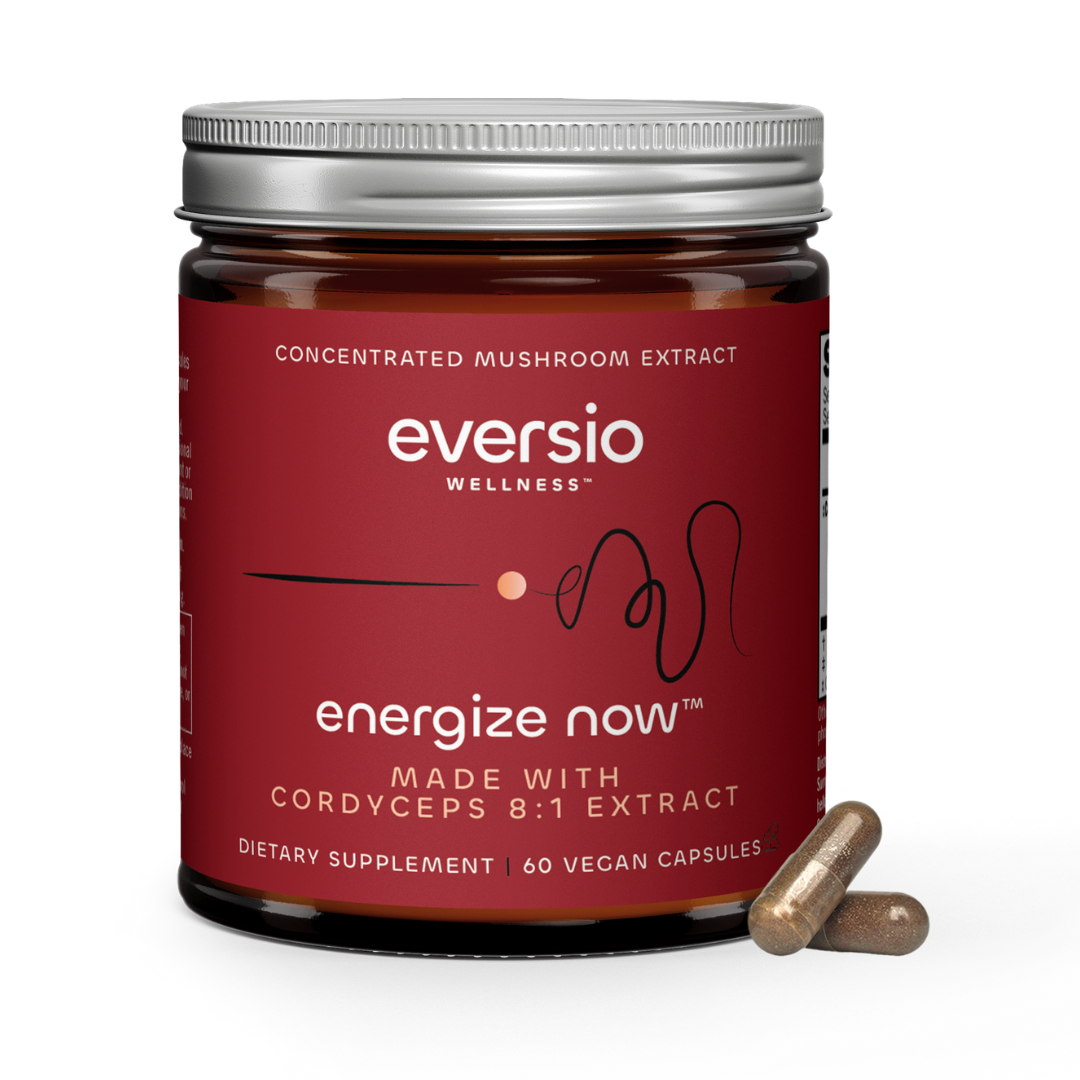Have you heard of the term adaptogen? It’s a bit of a trendy word lately as society has been more open to dealing with mental health. An easy definition is that adaptogens help you adapt to stress, but how do they work?
Bear with me while I explain a little bit about the physiology of stress. The General Adaptation Model states that we have a three-stage response to stress: alarm, resistance, and exhaustion.
- In the Alarm Stage, two mechanisms are activated: the SAM-axis and the HPA-axis. The Sympathetic-Adrenal-Medulla (SAM) axis initiates our quick responding “fight or flight” mode via the sympathetic nerve, activating the adrenal medulla, and releasing epinephrine and norepinephrine. The Hypothalamic-Pituitary-Adrenal (HPA) axis activates the slower but longer-lasting stress response by stimulating the hypothalamus, pituitary, and adrenal glands to release cortisol.
- In the Resistance Stage, SAM-axis is much less active than the HPA-axis. During this stage, our cortisol levels are elevated. This is when adaptation needs to occur for cortisol to have negative feedback on the hypothalamus and shut down the stress response. If this does not occur it results in chronic stress resulting in arousal/exhaustion.
- In the Exhaustion Stage, sustained levels of cortisol via the chronic activation of the HPA-axis results in the eventual drop in cortisol levels. Decreased cortisol levels result in metabolism and digestion impairment, weakened immune system, fatigue, loss of muscle, impaired bone deposition and more.
Okay, enough physiology, where do adaptogens fit in? Well, adaptogens help us to stay in the Resistance Stage longer. The natural substances contain similar-shaped structures that help to mediate the regulation of the HPA-axis stress response. They help to maintain and/or help recover homeostasis, strengthen stress responses, and regulate hormone expression, specifically in the adrenal cortex so that excess release of cortisol is avoided. They have also been termed “stress vaccines” as they induce a mild activation of stress that then allows both the body and cells to adapt to better mitigate more severe stress in the future.
As always, allow me to bring it home with a few examples of the adaptogens that I currently rotate through to help me deal with the stressors of being a fourth-year naturopathic medical student:
- Mushroom extract blend of Cordyceps militaris (Cordyceps) and Hericium erinaceus (Lion’s Mane) – boosts stamina and improves focus
- Mushroom extract of Ganoderma lucidium (Reishi) – supports function of the adrenal glands
- Withania somnifera (Ashwagandha) – reduces stress and anxiety
- Curcuma longa (Turmeric) – boost brain function and reduces mental fatigue and depression
- Schisandra chinensis (Schisandra) – boosts endurance, mental performance, and working capacity
Of course, there are so many more adaptogens out there and other ways to build resistance to and to lower stress levels, for example meditating, yoga, mindfulness, etc. Now that you know a little more about adaptogens and how to manage stress, what form of self-care will you choose for yourself when things get a little tricky?
Disclaimer: while herbs and plants are readily available to consume, please see your Naturopathic physician or licenced herbalist before taking any of the mentioned herbs medicinally as there can be interactions with medications as well as contraindications that may result in harm.
By Angeli Santos -- BA Psyc and 4th Year Student of Naturopathic Medicine, CCNM-Boucher




















Leave a comment
All comments are moderated before being published.
This site is protected by hCaptcha and the hCaptcha Privacy Policy and Terms of Service apply.